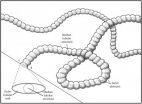(Press-News.org) MINNEAPOLIS, MN – May 6, 2014 – For over 30 years, aspirin has been known to prevent heart attacks and strokes, but who exactly should take a daily aspirin remains unclear. New research published today in Circulation: Cardiovascular Quality and Outcomes shows that your coronary artery calcium (CAC) score, a measurement of plaque in the arteries that feed the heart, may help determine whether or not you are a good candidate for aspirin.
"Many heart attacks and strokes occur in individuals who do not appear to be at high risk," states lead author, Michael D Miedema, MD, MPH. "Individuals with known CVD [cardiovascular disease] should take a daily aspirin, but the best approach for individuals without known CVD is unclear. If we only treat high-risk individuals with aspirin, we are going to miss a substantial portion of patients who eventually suffer heart attacks. However, liberally prescribing aspirin increases the bleeding risk for a significant number of people who were never going to have a heart attack in the first place. With this study, we wanted to see if there is potentially a better way to determine who to treat with aspirin beyond simply using traditional risk factors."
Aspirin helps prevent heart attacks and strokes by preventing blood clots from forming in arteries lined with unhealthy plaque buildup. However, this same benefit puts patients taking aspirin at risk for dangerous bleeding, when blood clots don't form where they should. For that reason, the American Heart Association (AHA) guidelines currently recommend aspirin to prevent cardiovascular disease (CVD) in people who have known CVD or who are considered to be at high risk for a CVD event. Aspirin is generally not recommended for people who are considered to be at low or intermediate risk.
In this retrospective study, researchers studied 4,229 participants in the Multi-Ethnic Study of Atherosclerosis (MESA) from six centers across the country. Participants included had no known CVD or diabetes, were not on aspirin therapy, and were followed for approximately 7 years.
Participants were grouped according to their CAC score and the rates of heart attacks in each group were calculated. Based on these rates, the research team weighed the likelihood of an individual to benefit from aspirin therapy (the potential of the aspirin to prevent a heart attack) against the likelihood of harm (the potential for the aspirin to cause major bleeding). They estimated that participants with elevated CAC scores (>100) were 2−4 times more likely to benefit from aspirin therapy than to be harmed, even if they did not qualify for aspirin use according to current AHA guidelines. Conversely, MESA participants with no calcified plaque (CAC score = 0) were 2−4 times more likely to be harmed by aspirin use than to benefit. The results in both groups held true even after accounting for traditional risk factors.
"We estimate that individuals with significant plaque buildup in the arteries of the heart are much more likely to prevent a heart attack with aspirin use than to suffer a significant bleed" explains Miedema. "On the opposite end of the spectrum, if you don't have any calcified plaque, our estimations indicate that use of aspirin would result in more harm than good, even if you have risk factors for heart disease such as high cholesterol or a family history of the disease."
Miedema added, "A CAC score of zero is associated with a very low risk of having a heart attack. That means individuals with a score of zero may not benefit from preventive medications, such as aspirin as well as the cholesterol-lowering statin medications. Approximately 50% of middle-aged men and women have a CAC score of zero, so there is a potential for this test to personalize the approach to prevention and allow a significant number of patients to avoid preventive medications, but we need further research to verify that routine use of this test is the best option for our patients."
INFORMATION:
Michael Miedema is a preventative cardiologist at the Minneapolis Heart Institute® at Abbott Northwestern Hospital and a clinical investigator with the Minneapolis Heart Institute Foundation (MHIF). The full study results are published in Circulation: Cardiovascular Quality and Outcomes at http://circoutcomes.ahajournals.org/content/early/2014/05/06/CIRCOUTCOMES.113.000690.abstract.
About the Minneapolis Heart Institute Foundation
The Minneapolis Heart Institute Foundation is dedicated to improving people's lives through the highest quality cardiovascular research and education.
Scientific Innovation and Research — Publishing more than 120 peer-reviewed studies each year, MHIF is a recognized research leader in the broadest range of cardiovascular medicine. Each year, cardiologists and hospitals around the world adopt MHIF protocols to save lives and improve patient care.
Education and Outreach — Research shows that modifying specific health behaviors can significantly reduce the risk of developing heart disease. Through community programs, screenings and presentations, MHIF educates people of all walks of life about heart health. The goal of the Foundation's community outreach is to increase personal awareness of risk factors and provide the tools necessary to help people pursue heart- healthy lifestyles.
About the Minneapolis Heart Institute®
The Minneapolis Heart Institute® is recognized internationally as one of the world's leading providers of heart and vascular care. This state-of-the-art facility combines the finest in personalized patient care with sophisticated technology in a unique, family-oriented environment. The Institute's programs, a number of which are conducted in conjunction with Abbott Northwestern Hospital, address the full range of heart and vascular health needs: prevention, diagnosis, treatment and rehabilitation.
Contact:
Jackie Boucher
Minneapolis Heart Institute Foundation
612-863-1636
jboucher@mhif.org
http://www.mplsheart.org
Cardiac screening test may help determine who should take aspirin to prevent heart attack
2014-05-09
ELSE PRESS RELEASES FROM THIS DATE:
NASA's TRMM Satellite see spring storms hit the US Great Plains
2014-05-09
VIDEO:
The TRMM satellite flew above tornado spawning thunderstorms in the southern United States on May 9, 2014 at 0115 UTC. This simulated 3-D TRMM animation shows the location of intense...
Click here for more information.
The Tropical Rainfall Measuring Mission or TRMM satellite captured rainfall and cloud height information about the powerful thunderstorms and severe weather that affected the Great Plains over May 8 and 9.
Severe weather extended from Minnesota to southern ...
Plugging leaky blood vessels to save vision
2014-05-09
TORONTO – A new drug approach has been developed for safer clean-up of deformed blood vessels in the eye by a research team at the Lunenfeld-Tanenbaum Research Institute, Mount Sinai Hospital in Toronto.
The growth of malformed blood vessels that can burst is a leading cause of vision loss in North America. Retinopathy and retina degeneration are associated with premature birth, with diabetes, and with increasing age.
Research just published by Dr. Andras Nagy and co-authors shows both safety and effectiveness in their bioengineered compound when treating retinopathy ...
Paleontologists discover new fossil organism
2014-05-09
RIVERSIDE, Calif. — Scientists at the University of California, Riverside have discovered a fossil of a newly discovered organism from the "Ediacara Biota" — a group of organisms that occurred in the Ediacaran period of geologic time.
Named Plexus ricei and resembling a curving tube, the organism resided on the Ediacaran seafloor. Plexus ricei individuals ranged in size from 5 to 80 centimeters long and 5 to 20 millimeters wide. Along with the rest of the Ediacara Biota, it evolved around 575 million years ago and disappeared from the fossil record around 540 million ...
Discovery links rare, childhood neurodegenerative diseases to common problem in DNA repair
2014-05-09
(MEMPHIS, Tenn. – May 9, 2014) St. Jude Children's Research Hospital scientists studying two rare, inherited childhood neurodegenerative disorders have identified a new, possibly common source of DNA damage that may play a role in other neurodegenerative diseases, cancer and aging. The findings appear in the current issue of the scientific journal Nature Neuroscience.
Researchers showed for the first time that an enzyme required for normal DNA functioning causes DNA damage in the developing brain. DNA is the molecule found in nearly every cell that carries the instructions ...
Longevity gene may boost brain power
2014-05-09
Scientists showed that people who have a variant of a longevity gene, called KLOTHO, have improved brain skills such as thinking, learning and memory regardless of their age, sex, or whether they have a genetic risk factor for Alzheimer's disease. Increasing KLOTHO gene levels in mice made them smarter, possibly by increasing the strength of connections between nerve cells in the brain. The study was partly funded by the National Institutes of Health.
"This could be a major step toward helping millions around the world who are suffering from Alzheimer's disease and ...
Autism-related protein shown to play vital role in addiction
2014-05-09
BELMONT - In a paper published in the latest issue of the neuroscience journal Neuron, McLean Hospital investigators report that a gene essential for normal brain development, and previously linked to Autism Spectrum Disorders, also plays a critical role in addiction-related behaviors.
"In our lab, we investigate the brain mechanisms behind drug addiction – a common and devastating disease with limited treatment options," explained Christopher Cowan, PhD, director of the Integrated Neurobiology Laboratory at McLean and an associate professor of Psychiatry at Harvard Medical ...
Quick test can help spot depressed teenagers, UT Arlington nursing researcher finds
2014-05-09
A few minutes spent filling out a widely accepted mental health assessment in a health care provider's waiting room could make a big difference for some teenagers suffering from depression, according to new study from a nursing researcher at The University of Texas at Arlington.
Sharolyn Dihigo, a nurse practitioner and clinical assistant professor in the UT Arlington College of Nursing, recently examined available research to determine whether nurse practitioners and others in primary care settings should add a mental health screening to well visits for teenage patients. ...
Conducting polymer films decorated with biomolecules for cell research use
2014-05-09
The ability to create conducting polymer films in a variety of shapes, thicknesses and surface properties rapidly and inexpensively will make growing and testing cells easier and more flexible, according to a team of Penn State bioengineers.
"The ultimate goal of this collaborative project is to be able to create a substrate for growth and manipulation of cells," said Sheereen Majd, assistant professor of bioengineering. "Cells on a surface need to recognize biomolecules like extracellular matrix proteins to be able to adhere and grow. We ultimately would like to be able ...
Grape consumption may offer benefits for symptomatic knee osteoarthritis
2014-05-09
Fresno, CA – New research presented last week at the Experimental Biology conference in San Diego, California, suggests that regular grape consumption may help alleviate pain associated with symptomatic osteoarthritis of the knee, and improve joint flexibility and overall mobility. Researchers attribute these potential benefits to the polyphenols found in grapes.
The sixteen week clinical study, undertaken by Texas Woman's University, was designed to investigate the benefits of grape consumption on inflammation and osteoarthritis outcomes. 72 men and women with knee ...
Calcium supplements not associated with increased risk of cardiovascular disease in women
2014-05-09
Boston, MA – Calcium supplements are widely taken by women for bone health. Previous studies have suggested that calcium supplements may increase risk of cardiovascular disease, but the data has been inconsistent. A new study by researchers at Brigham and Women's Hospital (BWH) did not find that calcium supplement intake increases risk of cardiovascular disease in women.
The study is published online this month in Osteoporosis International.
Researchers examined supplemental calcium use and incident cardiovascular disease in a prospective cohort study of 74,245 women ...



